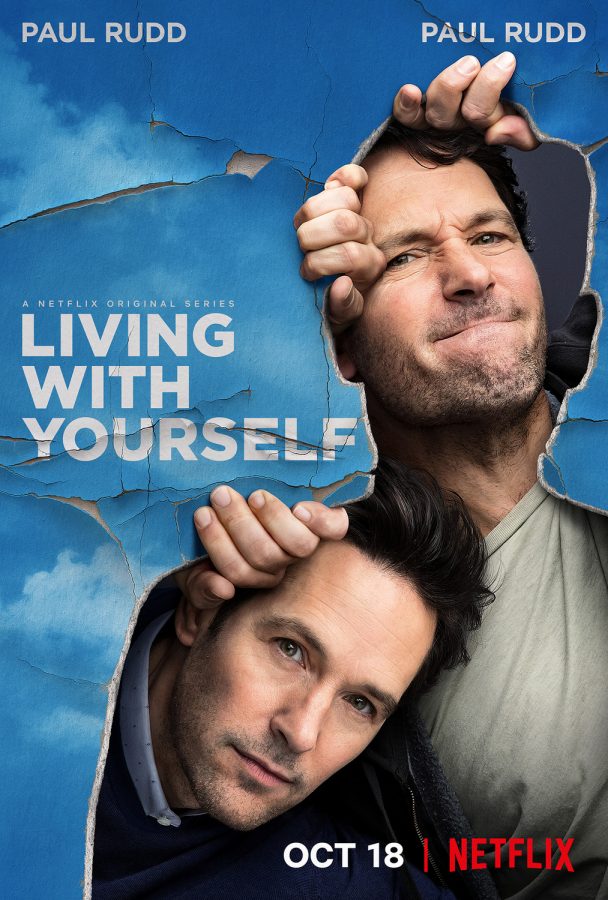Living With Yourself Provides a Look into the Mind
Netflix’s original “Living With Yourself”, created by Timothy Greenberg, is very original and fresh. “Living With Yourself” is about a man named Miles Elliot, played by Paul Rudd, who is burned out on life. A co-worker notices this and recommends going to a spa. Costing $50,000, Miles undergoes a mysterious treatment, only to wake up and discover he has been replaced by a ‘better’ version of himself. The premise of the show is the two Miles trying to live one life which undoubtedly gets complicated along the way.
The show lands on the spectrum somewhere between “Black Mirror” and “Multiplicity”. The first episode throws you right in from the start almost like Breaking Bad. From there, it’s a little slow as tension builds but it’s worth the wait. The show switches between the perspectives of both Miles by routinely going back to scenes we’ve seen before from a different point of view. Sometimes it’s not just Miles’ point of view, but his wife Kate’s (Aisling Bea) point of view. Not only is this amusing, but it helps shed light on how things happen in the show and the characters’ motives to do different things.
As you get closer to the end of the series, the title’s double meaning begins to emerge. Not only does Miles have to live with himself physically, but also mentally and emotionally. While the show is a sci-fi comedy, it really explores the questions humans have been asking for centuries: Who are we and what are we?
At some points in the show it pushes how to be happy and finding happiness within yourself. Living With Yourself is not only about choosing to be happy and being happy, but earning your happiness for yourself. It emphasizes not relying on other people to bring you happiness or just expecting it to come out of nowhere.
The only flaw I could find with this show is that it’s often caught in a genre limbo. It’s hard to pinpoint exactly what the show is. At some points, it’s lighthearted and hilarious but at other points, it’s existential and begs the audience to reflect on their lives. Even so, for an eight-episode season with thirty-minute installments, it’s well worth the watch to see Paul Rudd shine twice within himself and on screen.
I give it 4/5 Maroons.








